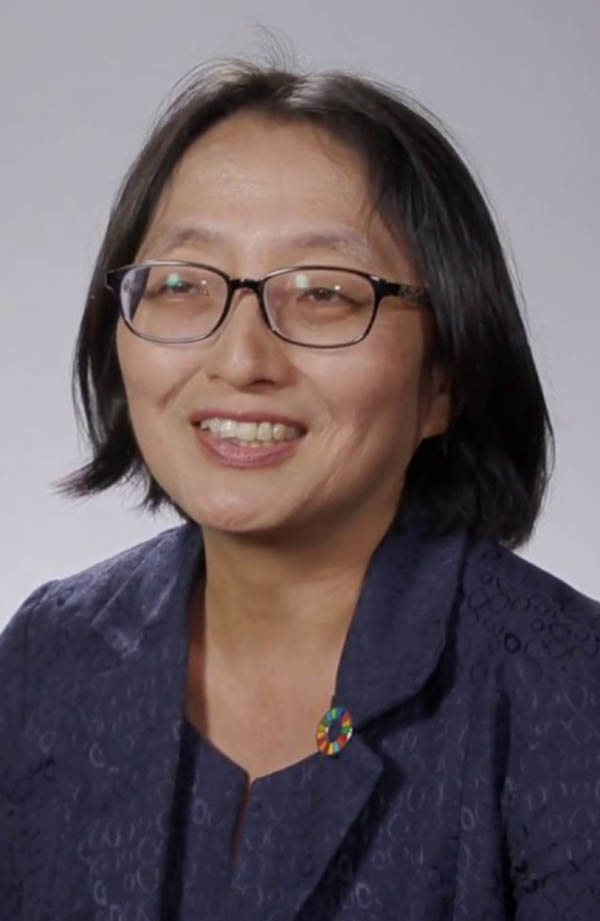June 28 ,2021

Mikiko Tanaka
-United Nations Resident Co-ordinator
Decriminalising homosexuality here is a critical first step in protecting the rights of LGBTIQ+ persons and facilitating fairness and equality before the law, according to Resident Co-ordinator, United Nations Guyana, Mikiko Tanaka.
In a statement published in yesterday’s Sunday Stabroek in commemoration of pride month, Tanaka noted that Guyana’s society like any other around the world exhibits elements of conservatism based on traditional and cultural norms but which sometimes result in discriminatory treatment in everyday settings. In the worst cases, she noted that this entails attacks ranging from aggressive verbal abuse to physical assaults.
“Guyana’s Constitution guarantees the fundamental rights and freedoms of all Guyanese. However, Guyana is among ten Caribbean countries that still maintain laws from the colonial era which criminalise same-sex intimacy. The existence of these laws reinforces personal and institutional prejudices that contribute to ongoing discrimination from public and state actors alike”, she declared, adding that decriminalising homosexual relations is a critical first step to protecting the rights of Lesbian, Gay, Bisexual, Transgender, Intersex and Queer (LGBTIQ+) persons.
She said that over the last decade there have been significant milestones in protecting the rights of these persons and creating inclusivity and pointed to the Caribbean Court of Justice’s (CCJ) ruling in November 2018 which said that Guyana’s law on cross-dressing was discriminatory and unconstitutionally vague. Tanaka welcomed the government’s recent tabling of a bill to decriminalise cross-dressing.
“This is a welcomed legislative step that will bring an appropriate closure to this matter”, she said.
At the conclusion of Guyana’s Third Universal Periodic Review in relation UN human rights treaties, Tanaka pointed out that this country supported several recommendations in relation to LGBTIQ+ persons.
“The government has supported recommendations to continue making efforts to combat acts of violence and discrimination, to ensure inclusion in economic activities, and integrate sensitisation training into (the) curriculum to improve responses to discriminatory acts against people based on sexual orientation, gender identity/expression, and sex characteristics. Implementation of these recommendations will build positive steps to protecting LGBTIQ+ persons”, she said.
She contended that the positive changes to social attitudes on the issue can be attributed to the works of Civil Society Organisations (CSOs) here such as the Guyana Rainbow Foundation, the Society Against Sexual Orientation Discrimination (SASOD) and Guyana Trans United among others.
“Guyana has come a long way but still has some ways to go in advancing the rights of LGBTIQ+ persons. Legislative change, education, sensitisation and continued advocacy are important steps which will require a collaborative approach across government, civil society organisations, international organisations and general society”, she asserted.
Tanaka said that the UN system in Guyana has worked with the government, parliament, judiciary and civil society to advance the rights of LGBTIQ+ persons and to encompass them in the country’s development. UN agencies, she said, have also supported social initiatives such as capacity building for CSOs on HIV prevention and treatment and the provision of HIV testing and prevention packages to the LGBTIQ+ community. As a response to the COVID-19 pandemic, she said that the United Nations Development Programme and the International Organisation for Migration partnered with SASOD Guyana to share relief packages and nutritional support to those in need.
The Resident Co-ordinator said that Guyana has ratified several international conventions and treaties “and is obligated to prevent, investigate and redress human rights violations and is explicitly prohibited from discriminating against persons on the basis of their actual or perceived sexual orientation, gender identity or gender expression”.
